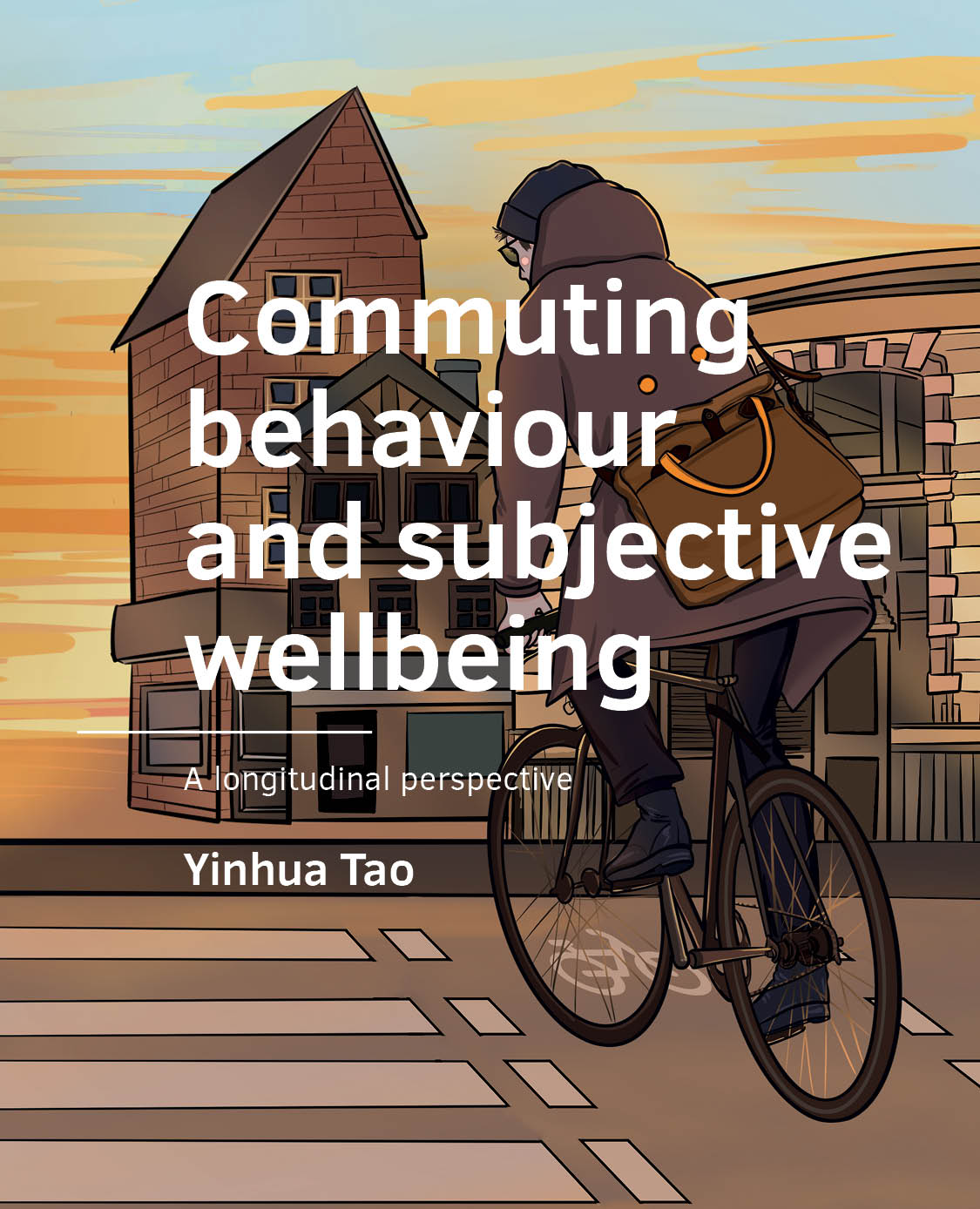Commuting behaviour and subjective wellbeing
A longitudinal perspective
DOI:
https://doi.org/10.7480/abe.2023.07.7054Abstract
This thesis has investigated the relationship between daily commuting behaviours and long-term subjective wellbeing from a longitudinal perspective. The underlying problem that motivated the thesis is the inconsistent research evidence on the commuting-wellbeing relationship, and more importantly, the insufficient theoretical conceptualisation of this relationship. As a response to the gap between theoretical understandings and empirical research, this thesis used a processual approach to frame the commuting-wellbeing relationship as an interdependent process over time. To operationalise this processual approach, two ways forward were proposed for longitudinal research, namely retrieving the upstream process that leads to changes in commuting behaviours and enriching the contextual understanding of commuting-wellbeing relationships. The upstream process of commuting changes pertains to the reason for people to (not) change their commuting behaviours, while the contextual understanding relates to the commuting-wellbeing relationship as time- and place-specific. Following these two ways forward, the empirical analysis of this thesis drew upon the nationwide panel data from China, the Netherlands and the United Kingdom to longitudinally investigate the relationships between commuting behaviours and subjective wellbeing over time. The aim of this thesis is not to identify a unidirectional commuting-wellbeing causality uniform to the general population and across research areas, but to acknowledge, operationalise and better understand the interdependent commuting-wellbeing relationships situated in the life courses of people and the socio-spatial contexts of places.


